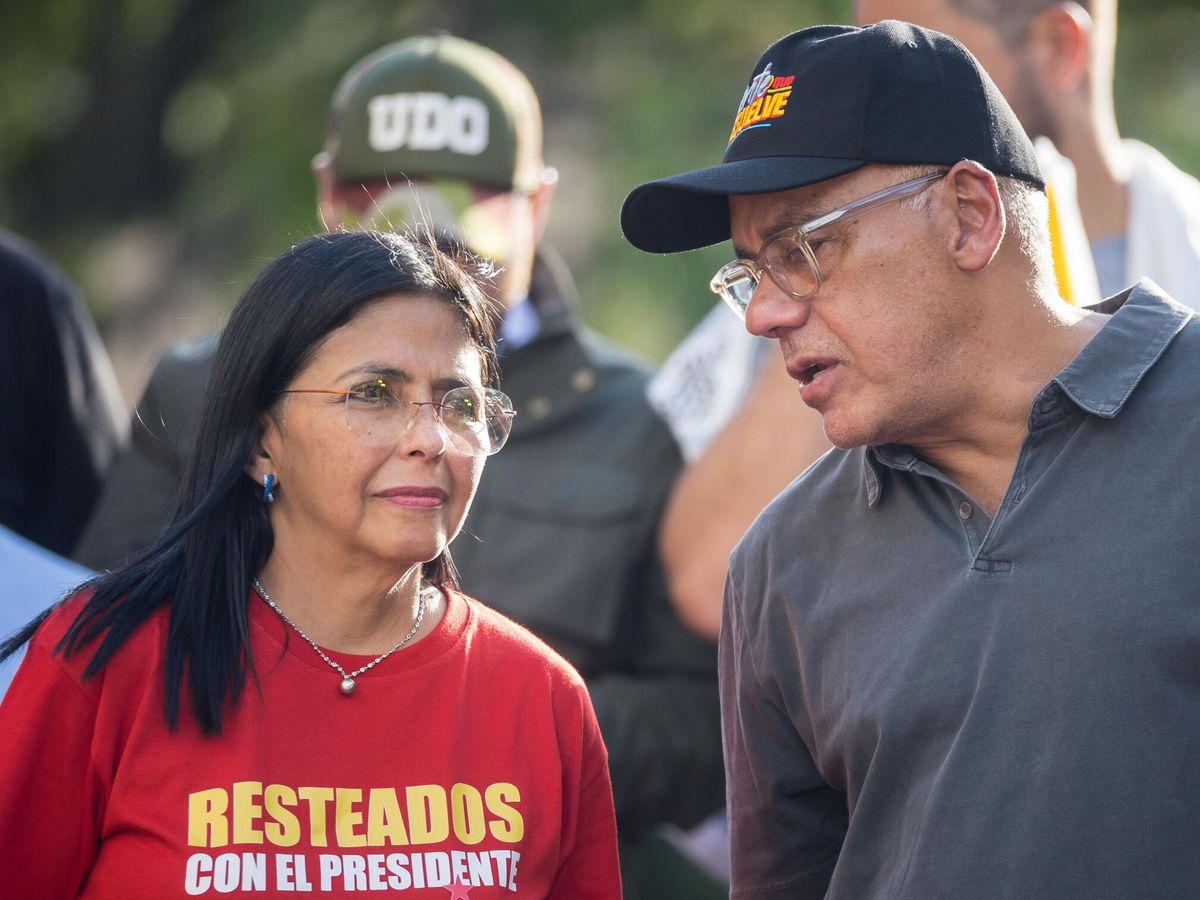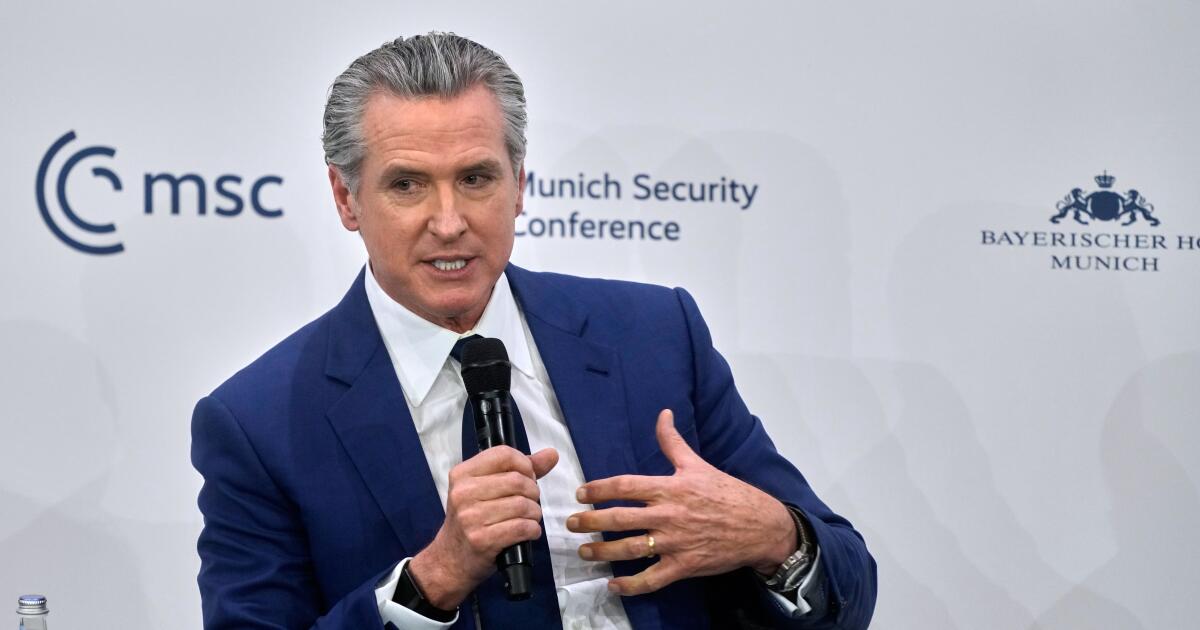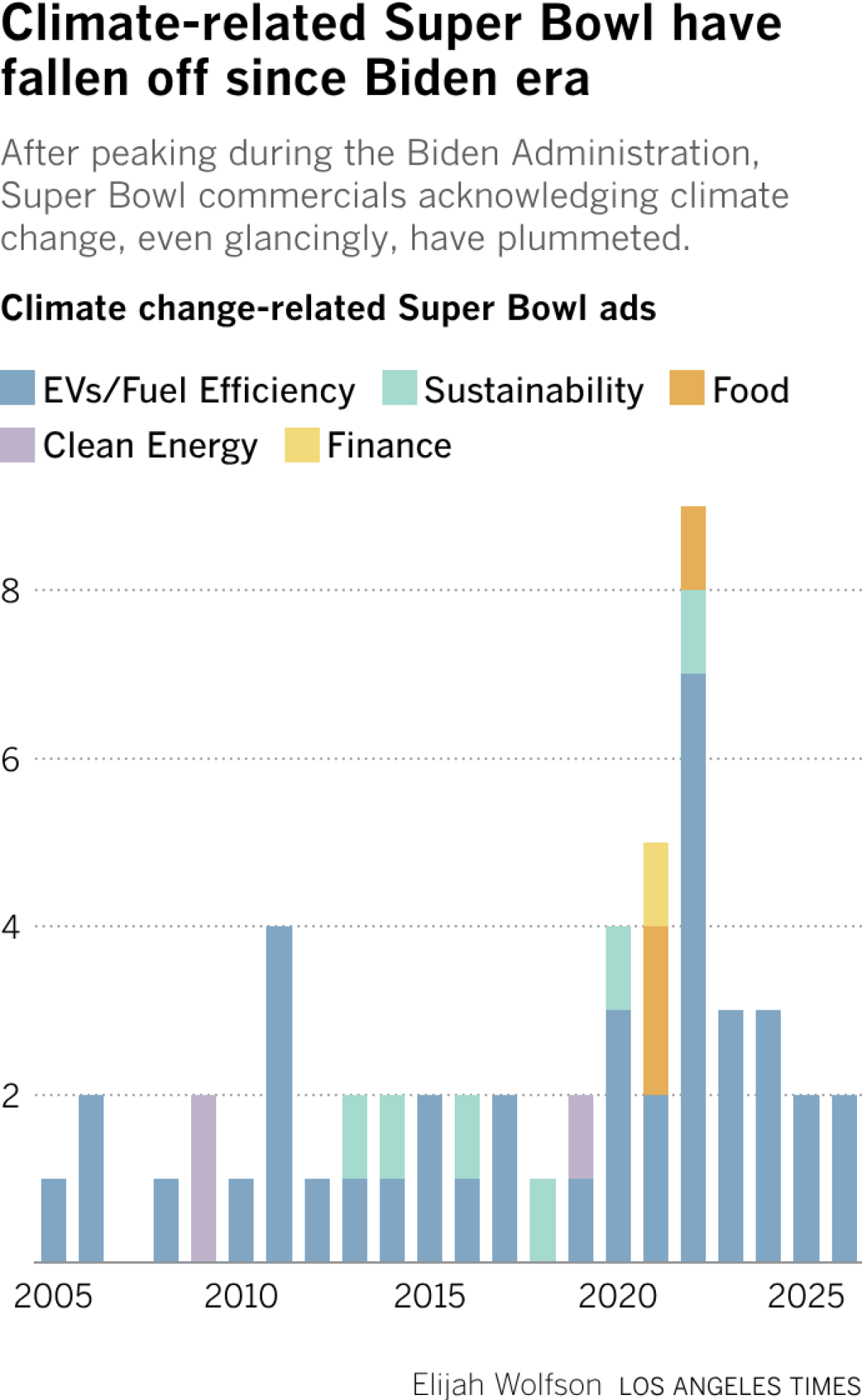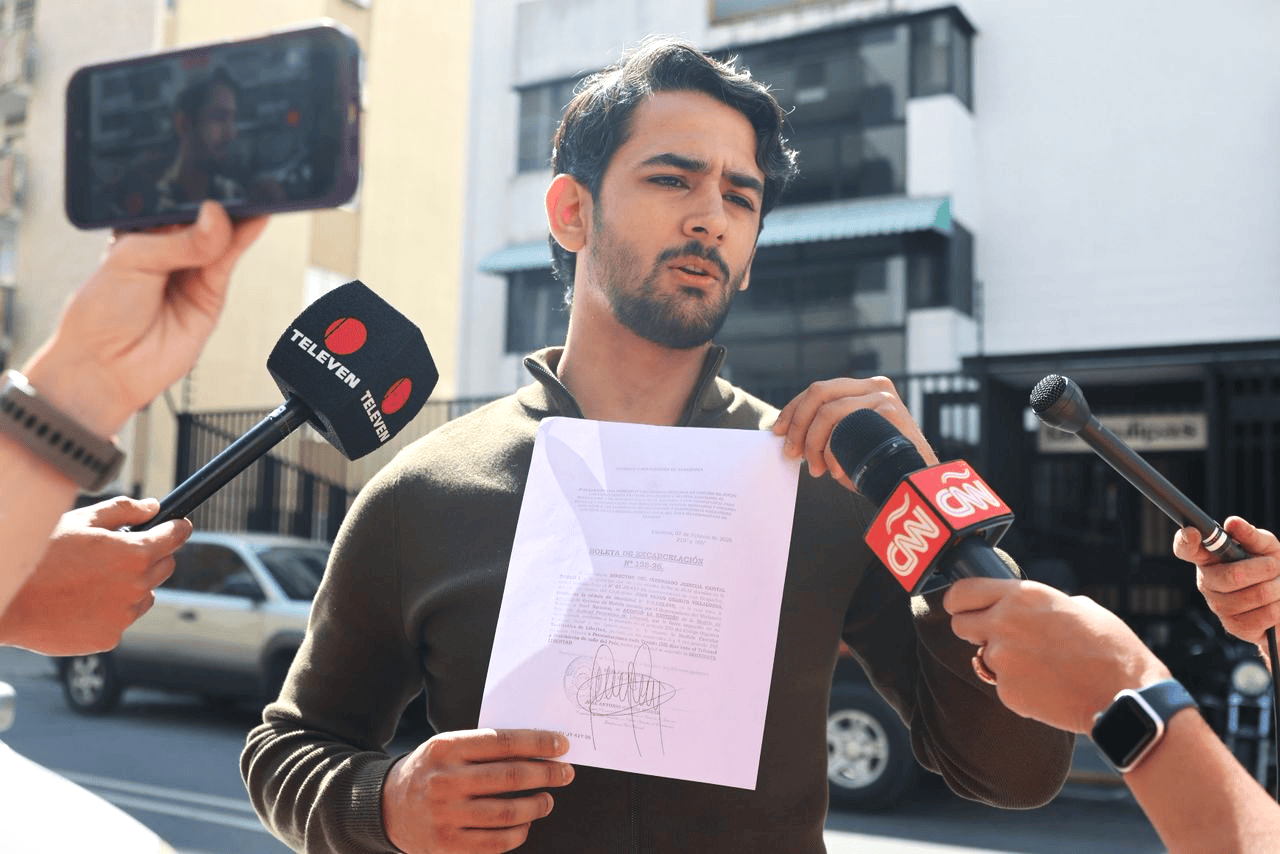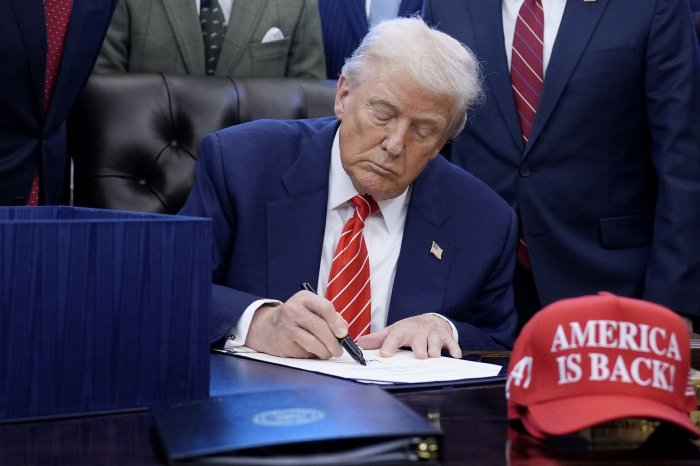The Stress Points Delcy Rodríguez Must Worry About
An interesting debate about the past two months centers on the extent to which Delcy Rodríguez is finding her new seat comfortable. There are areas where she feels like a smooth operator (or a yes-woman for Rubio and Trump) and levers she can’t yet pull without finding resistance from her old comrades.
One can sense she isn’t too bothered driving Trump’s energy agenda. As Maduro’s economic vice president and oil minister, the last few years saw Delcy spend serious amounts of energy lobbying for sanctions relief, engaging with consecutive US governments, and maneuvering to bring in new players to the oil industry. Experts still cast doubt on her ability to reinvigorate an economy and energy sector that still requires an institutional revamp much broader than a single piece of legislation.
The issue is not the written rules themselves, but that the chefs in Washington DC are currently rebuilding the restaurant with the same cooks who, no matter how new the pots and pans, will sooner or later revert to the habits that made the kitchen a pigsty to begin with.
Sure, steps are being taken to move on the economic trajectory the US has imposed. In the first 50 days of the so-called “new political moment,” we have a new energy law, a US Treasury account holding Venezuela’s oil revenues, and dollar auctions for private banks at a free exchange rate. Last week, Trump’s Energy Secretary Chris Wright visited the country. In front of him, Chevron boasted of its crown jewels. The US followed up with further sanctions relief, albeit limited and subject to specific authorizations.
In the opposite end, the country still lacks clarity over political trajectory. The puzzle of democratization has hundreds of missing pieces. It’s not just a matter of whether elections will be held and results enforced, with the opposition choosing its candidate, with competitors sitting down to discuss the day after the vote, etc. Every question about freedoms and human rights has come attached to the ifs, buts and maybes of a regime that can’t even agree on the degree of control it gives up or whether politicians will be allowed to behave like politicians. The Guanipa incident suggests the answer is still no. So does the fact that Miguelangel Suárez, the Universidad Central student leader, was chased and spied on hours after last week’s Youth Day protest.
It’s still early, but in the sphere of political liberalization, the mantra from Jorge and Delcy Rodríguez seems to be: raise expectations and fall short.
Big headlines, slow progress
As noted by Camila González in our latest post, the Rodríguez siblings are trying to convey the idea that they’re true political reformers rather than the alleged traitors of the revolución that foreign newspapers obsessed with after January 3. Their messages are simple: we know how bad things are, though we can’t always admit it, we will empty the country’s prisons, we’d like to overhaul the courts.
Delcy’s speech at the Supreme Tribunal on January 30th is a prime example. Not only did she order the creation of an amnesty statute covering chavismo’s lifespan and the shutdown of El Helicoide. She invoked a “great national consultation” for a new justice system (which likely points at behind-the-scenes discussion the ruling elite and the military are having) before naming some of the issues that make the system so dysfunctional: lacking access to justice, procedural delays, and corruption across the country’s tribunals and prosecutors’ offices. Jorge, more adept at improvising to manipulate different audiences, later said that guys like him need to both “forgive and ask for forgiveness” before describing political prisoners as necessary, “due to the realities, circumstances and the concrete situation of a society.” Three weeks after his remarks, 444 political prisoners have been released. Six hundred are still behind bars.
In theory, the amnesty law should also entail the release of the so-called historic, Chávez-era political prisoners.
These performances seem to align with the tendencies of the biggest external stakeholder in the process, Donald Trump, who has publicly praised Delcy Rodríguez and releases as a powerful humanitarian gesture. But in Venezuelan cliques, the implementation and discourses around these initiatives (brought about under a careful management to shield domestic stakeholders from further pressures) underscore the internal resistance and tensions playing inside chavismo.
The amnesty law, a key landmark of any political transition, would open the door to the return of political figures that includes many of chavismo’s longtime enemies, and perhaps more crucially, confrontation with the consequences of years of having imprisoned military officers subjected to the worst kind of punishments under the high command’s oversight. Foro Penal reports that 185 FANB personnel are still imprisoned. Venezuelan journalist Hernán Lugo Galicia affirms that most of them are National Guards and Army officers, and that only a handful have been released since the process began on January 8.
An amnesty in handcuffs
In theory, this policy should also entail the release of the so-called historic, Chávez-era political prisoners: public officials convicted in trials riddled with irregularities. This group includes Héctor Rovaín, Erasmo Bolívar, and Luis Molina—former officers of the now-defunct Caracas Metropolitan Police accused of shooting demonstrators and supplying weapons to coup participants during the massive anti-Chávez protest of April 11, 2002 (the narrative chavismo used to shield armed colectivos and party leaders from legal responsibility). It also includes Otoniel, Juan Bautista, and Rolando Guevara, three police agents convicted for the murder of Danilo Anderson, the prosecutor investigating the planning of the 2002 coup.
These cases are deeply symbolic for the regime: the conviction of the Metropolitan Police officers helped cast blame on a handful of supposedly putschist cops while insulating the Chávez government from responsibility for the violent deaths. The Guevara case, meanwhile, appears designed to silence the controversy and corruption that surfaced during investigations into the events of 2002.
Releasing the históricos (who go back to a time where Delcy and Jorge Rodríguez were not in politics) would be an admission that chavismo engaged in political persecution early on, tearing down the myth of one of its martyrs in Anderson and the Policías Metropolitanos as the sole rotten apples of 2002. Releasing FANB members, many in terrible shape because of mistreatment and prolonged isolation, would of course add another layer of pressure to a military high command embarrassed by the American incursion that killed dozens of subordinates and captured the commander-in-chief, not to mention the array of testimonies and revelations that a decision like that could start to induce. Interior Minister Cabello is well aware of that, and sounds resolute in his opposition to the release of those accused of plotting or rebelling in arms.
The amnesty bill is now stuck. Chavista lawmakers don’t yet agree on the contents of Article 7, which commands dissidents charged with relevant crimes, many of which went in hiding or fled the country, to turn themselves in in order to become amnesty beneficiaries.
Reality suggests that supposed moderates still fall short, unable to break from the dominant logic of fear and control.
“They said they didn’t do anything. Not lobbying for sanctions, not cheering at the (US) intervention. The amnesty is about acknowledging mistakes,” Iris Varela recently said in a pro-chavista podcast. “If you want both an amnesty and to return to the country, then come over here, prove you were under persecution, and get the amnesty.”
Varela is one of the lawmakers in charge of the amnesty project, but she is known as a radical chavista for more than 20 years. After her intervention in the National Assembly last week, Jorge Rodriguez decided to adjourn the discussion arguing that the minority bloc led by Henrique Capriles had requested further amendments.
Therein lies another distinction in the official choreography surrounding the amnesty saga. Even if all chavista voices ultimately recycle the same talking points about sovereignty, malign NGOs, and chavismo as the guarantor of peace, their performances differ in tone and posture. While figures such as Diosdado Cabello and Iris Varela maintain an unyielding stance toward traditional opponents, more civilian-facing chavista actors are attempting to stage a process in which civil society groups ostensibly have a say in shaping the amnesty bill.
Representatives from leading human rights organizations such as Provea and Foro Penal attended a meeting with the parliamentary Domestic Policy Committee, shortly after Professors Guillermo Aveledo (Universidad Metropolitana) and Juan Carlos Apitz (Universidad Central de Venezuela) were allowed to criticize and question the extent to which reforms are actually in motion, while in the same room as Jorge Rodríguez and Nicolás Maduro Guerra.
These meetings may well be cosmetic, and are unlikely to determine the final legal outcome, but they appear designed to position certain chavista officials within a “moderate” camp: figures supposedly willing to build bridges with the opposition and entertain uncomfortable truths, even if their broader script remains unchanged.
Reality suggests that supposed moderates still fall short, unable to break from the dominant logic of fear and control. After what appeared to be a staged embrace with relatives of political prisoners, the promise by Jorge Rodríguez to release all detainees held at the PNB jail in Boleíta, eastern Caracas, is yet to materialize. Meanwhile, Jorge Arreaza, who heads the Internal Policy Committee, recently offered little beyond justifying Guanipa’s re-arrest as relatives of victims and journalists pressed him for answers about the release process.
Scenes like these—Rodríguez, however calculated the gesture, appearing outside a political prison, and Arreaza being publicly challenged and scrutinized in the streets—would have been inconceivable just a year ago. They are a novelty in the politics of late-stage chavismo. But novelty is not reform. Such gestures are unlikely to persuade a skeptical public that a genuine shift is underway. Again, emphasis appears to rest more on optics than on tangible results.
Perfume and polish for the security sector
The Interior Ministry is still in Cabello’s hands, with top cops and allies running the main security agencies: Douglas Rico at CICPC, his cousin Alexis Rodriguez Cabello at SEBIN, and his old pal Gustavo González López now commanding both Delcy’s security ring and the fearsome DGCIM (his predecessor was fired after the US captured Maduro and Cilia Flores). Colonel Alexander Granko, who became the face of state violence in the 2020s, remains DGCIM’s special ops star, but has kept a low profile in recent weeks.
Having said that, recent moves suggest that Delcy Rodríguez retains an interest in the structure and functions of a security apparatus she does not fully control—and is willing to upgrade and trim it where possible. On February 9, the government officially dissolved the Strategic Center for Security and Protection of the Homeland (CESSPA), the intelligence body tasked with monitoring “foreign and domestic enemy activity” by centralizing data from all state security organs. Its shutdown came with the elimination of six social missions dating back to the Chávez and Maduro periods.
Senior politicians close to the opposition leader—Guanipa, Perkins Rocha, and Freddy Superlano—remain under house arrest. The amnesty law, scheduled for discussion tonight, would be entirely incompatible with that fact.
Earlier, flanked by senior chavista leaders and military generals, Rodríguez announced the creation of a new intelligence body: the National Office for Defense and Cybersecurity, conceived as a hub “where Venezuela’s scientists and technology experts should come together to defend our cyberspace.” She appointed Gabriela Jiménez to lead it, a biologist who previously served as Science and Technology Minister and was part of chavismo’s delegation during the Mexico negotiations. In August 2024, Jiménez had already alleged that the National Electoral Council (CNE) and dozens of Venezuelan institutions were the target of cyberattacks in the context of the July 28 presidential vote.
Delcy may have already taken a step toward the state goal of reforming the judicial system. This month, the National Assembly approved an amendment to the statute governing the CICPC, emphasizing clearer chains of command and defining officers’ roles in criminal investigations. In a country where the scientific police (whether the CICPC or its predecessor, the Policía Técnica Judicial) has long exercised outsized influence over the justice system, the reform does sound interesting. It doesn’t undo Chávez-era decrees that subordinate judges and prosecutors to intelligence bodies rather than positioning them as institutional checks. Whether this marks the beginning of deeper changes with chavismo in power also remains to be seen.
Information remains scarce and, now more than ever, the country’s future is being discussed behind closed doors, with few listening in—such as yesterday’s meeting between Southern Command chief Francis Donovan and Delcy Rodríguez, Cabello, and Vladimir Padrino López. Our latest Political Risk Report indicates that María Corina Machado’s return to Venezuela featured prominently in conversations between Secretary Wright and Delcy last week. That development would not only deepen tensions within chavismo, but also test the resilience of the supposed transition now being pursued.
Senior politicians close to the opposition leader—Guanipa, Perkins Rocha, and Freddy Superlano—remain under house arrest. The amnesty law, scheduled for discussion tonight, would be entirely incompatible with that fact. We will soon see how far the so-called moderate lawmakers are willing (or able) to push it.
